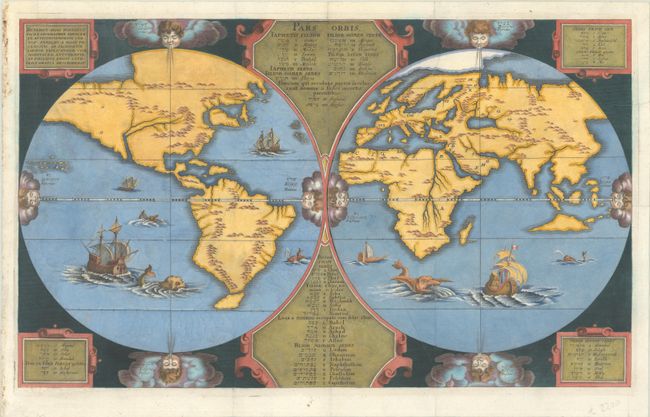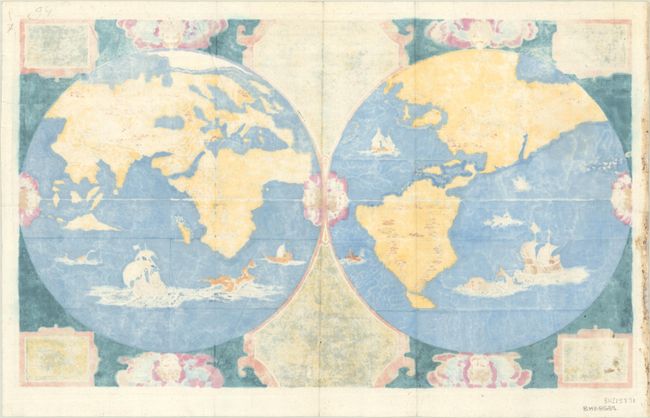Subject: World
Period: 1660 (circa)
Publication: Critici Sacri…
Color: Hand Color
Size:
20.4 x 12.3 inches
51.8 x 31.2 cm
This striking double-hemisphere world map is a rare English variant of Montanus' Polyglot Bible map of 1571/72, originally published by Christophe Plantin in the eight-volume Biblia Regia in Antwerp. At the time, the predominantly Protestant Netherlands was under the rule of Spain’s Catholic King Philip II. In an effort to counteract rumors that Plantin harbored Calvinist instincts, Plantin dedicated the work in advance to King Philip II. After agreeing to the commission, Philip II appointed Benito Arias Montanus to oversee the work.
Principally showing how Noah's three sons repopulated the world, the map features some very interesting cartography based on Gastaldi - with North America and Asia linked by a prominent land bridge. One of the interesting features on the map is a large island in the approximate position of Australia. Although some argue that this is the earliest depiction of Australia, Shirley postulates that it may simply represent "the engraver's license." The map is surrounded by strapwork cartouches containing text in both Hebrew and Latin, and is adorned with windheads, sailing ships, and sea monsters. Compared with the first edition, this edition is slightly smaller and the windheads have their eyes closed. In addition, the sea area has been completely revised with different ships and sea monsters, and the moiré pattern has been removed. This edition was published in the Critici Sacri, sive doctissimorum virorum in SS. Biblia annotationes & tractatus, a major compilation of biblical scholarship published in London, with various editions appearing between 1660 and 1690.
References: cf. Manasek #24; Shirley #125.
Condition: B+
Fine impression, issued folding with bold modern color, a few printer's creases, and marginal soiling. There is color bleed-through on verso.



